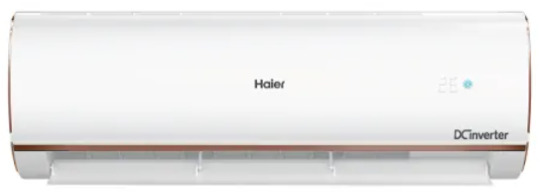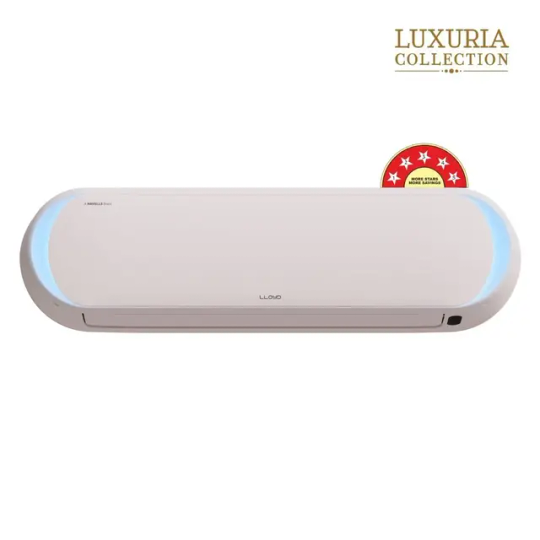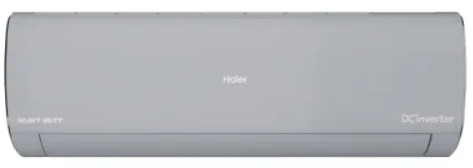#Smart AC
Explore tagged Tumblr posts
Text

1.5 Ton 4 Star AI Climate Control Triple Inverter+ Kinouchi Pro Smart Split AC
0 notes
Text
Why Upgrade to a Smart AC?
Smart AC is the future. Today, we will talk about some of the reasons why you should invest in a smart air conditioner.
0 notes
Text
youtube
Best Smart AC Ai Features WiFi Tamil 2025 in India
Brand: Panasonic Price: under 30000 to 50000 Inverter 1 T / 1.5 ton / 2 T 5 Star and 3 Star
0 notes
Text
How AI-powered sensors improve human comfort levels in air-conditioned spaces
Let’s be honest — we all want our homes and offices to feel just right. Not too hot, not too cold, and definitely comfy enough to relax or get work done. But have you ever thought about how your air conditioner actually knows how to keep you comfortable? With all the buzz around smart tech, there’s one star player here: AI in air conditioner systems, especially the AI-powered sensors inside them.
So, what’s the deal with these sensors? And how do they actually make a difference in how comfortable you feel? Let’s talk about it in plain, simple terms.
What Are AI-Powered Sensors, Really?
Imagine your AC has eyes and ears—it can “sense” what’s going on in the room. These sensors pick up on things like the temperature, how humid the air is, if anyone’s even there, and whether the air feels clean or stuffy.
Then the AI brain in the AC uses all this info to adjust how it cools your space. No more guesswork or wasting energy by blasting cold air all day when it’s not needed.
Here’s How These Sensors Make Life Better
1. It Feels Like the AC “Gets” You
Have you ever walked into a room that’s way too cold or not cool enough? Annoying, right? AI sensors learn your habits—when you’re usually home, where you spend most of your time—and adjust the temperature so it’s just right when you’re around.
2. Goodbye Sticky, Humid Air
Sometimes it’s not just about cool air; it’s about feeling fresh. High humidity makes rooms feel muggy and uncomfortable. The sensors keep an eye on that and help the AC reduce humidity so the air feels light and pleasant.
3. Breathing Easy Without Lifting a Finger
Some smart ACs also track air quality. If the air gets dusty or polluted, they kick on purification modes automatically. That means you’re breathing cleaner air all the time, which is especially great if you have allergies or sensitive lungs.
4. Cooling You, Not Empty Corners
Why waste energy cooling empty spots? These sensors know exactly where people are and focus the airflow there. It’s like the AC is paying attention, making sure you get the perfect breeze, not the dog sleeping in the corner.
5. Saving Energy Without Sacrificing Comfort
Here’s the best part: AI sensors help the AC run just enough to keep you comfy. So it doesn’t pump out cold air unnecessarily, which means lower electricity bills and less wasted energy. Everyone wins.
Why Should You Care?
Because comfort isn’t just about numbers on a thermostat. It’s about how you feel in your space—whether you’re chilling with family or grinding through work deadlines. AI-powered sensors help your AC create a cozy atmosphere that adapts to your lifestyle, without you having to constantly tweak anything.
What’s Next for AI and Air Conditioning?
This smart sensor tech is still evolving. Soon, your AC might sync with your calendar, adjust settings based on your mood or health, or chat with other devices to keep your entire home comfy and energy-smart.
To Wrap It Up
So yeah, AI-powered sensors aren’t just fancy tech jargon. They’re making air conditioners smarter, more efficient, and way more comfortable for real people like you and me. If you’re thinking of upgrading your AC, Haier has some excellent AI-powered models designed to keep Indian homes cool and cozy, without running up your electricity bills.
0 notes
Text

Lloyd Stellar Art Split AC 1.5 Ton 5 Star – Smart & Efficient Cooling
Discover the Lloyd Stellar Art Split AC (1.5 Ton, 5 Star, GLS18V5FBGST) with inverter technology, smart features, and superior energy efficiency. Enjoy powerful and eco-friendly cooling for your home.
#Lloyd Stellar Art AC#1.5 ton split AC#5 star inverter AC#energy efficient air conditioner#smart AC#Lloyd AC
0 notes
Text

Haier HSU19K-PZAIS5BN-INV-Limited Edition 1.6 Ton 5 Star AI Climate Control Smart AC - Moonstone Grey-Haier India
0 notes
Text
How to Use AI-Powered ACs to Maximize Comfort in a Multi-Storey Home
As smart technology continues to revolutionize modern living, artificial intelligence (AI) has made its way into home cooling systems. AI-powered AC air conditioner units are now among the most efficient ways to manage indoor temperature, particularly in multi-storey homes. These intelligent systems adapt to your lifestyle, room conditions, and weather changes to deliver customized comfort—without requiring constant manual input.
Understanding the Need for AI in Multi-Storey Homes
Cooling a multi-storey home can be tricky. Factors like uneven sun exposure, varying room sizes, and occupancy differences between floors can make it challenging to maintain a consistent temperature. Traditional systems often rely on guesswork or preset timers that may not reflect real-time needs. This is where AI technology comes in.
AI-powered split air conditioners are designed to learn and adjust. They monitor user behavior, ambient temperature, and humidity levels to automatically regulate cooling in each zone. Over time, they get "smarter," improving energy efficiency while maintaining optimal comfort.
Key Features of AI-Powered ACs
Zoned Cooling ControlIn a multi-level home, one-size-fits-all cooling doesn’t work. AI-enabled systems can be programmed to deliver cool air conditioning only where it’s needed. If you spend most of your time in the living room downstairs during the day and bedrooms upstairs at night, your AC system can adapt accordingly.
Motion Detection Sensors Many smart ACs use motion sensors to detect room occupancy. If a room is empty, the AC automatically reduces cooling, helping you save energy and costs without sacrificing comfort.
Real-Time Weather Integration AI-powered systems pull data from weather forecasts and adjust indoor settings. On particularly hot or humid days, your AC might begin cooling earlier or maintain a lower temperature without needing manual tweaks.
Voice & App Control Most modern AI split air conditioners can be controlled via smartphone apps or voice assistants. This means you can adjust settings for each floor of your home from anywhere, even if you're away on vacation.
Tips for Maximizing Comfort with AI ACs
Strategic Installation: Ensure your best AC for home is installed in the most heat-sensitive areas first—like rooms that get the most sunlight or are used most frequently.
Routine Maintenance: Even the smartest units need care. Regular filter cleaning and annual checkups will keep your system running smoothly.
Use Scheduling Features: Set personalized cooling schedules based on your family’s daily routine. This helps the AI learn and optimize faster.
Leverage Multi-Zone Settings: If your system supports it, assign separate temperature goals to each floor or room for a tailored experience.
Choosing the Best AC for Your Home
When shopping for the best AC for home, consider factors like energy ratings, AI capabilities, and cooling capacity. For multi-storey homes, split air conditioners with AI-driven multi-zone control offer the most efficient and personalized cooling solutions.
If you're looking to upgrade, Haier’s AI-powered AC air conditioner units stand out in both innovation and reliability. Their advanced AI features adapt cooling to your habits and living space, providing efficient cool air conditioning tailored to each floor of your home. With features like self-cleaning, Wi-Fi connectivity, and smart scheduling, Haier delivers not just cooling—but an intelligent comfort experience.
0 notes
Text

Haier HSU19G-MZAIM5BN-INV-Gravity Series 1.6 Ton 5 Star AI Climate Control Smart AC - Morning Mist-Haier India
0 notes
Text
The Boldr Klima Smart Thermostat optimizes temperature control for A/C units and heat pumps, featuring remote access, scheduling, and energy monitoring for cost savings.
0 notes
Text
The Rise of AI-Enabled Smart Air Conditioners
Home appliances have undergone a massive transformation with advancements in artificial intelligence (AI). Among these, air conditioning systems have significantly evolved, integrating AI-driven voice and gesture controls to enhance user experience, efficiency, and convenience. This blog explores how AI enables hands-free operation in modern air conditioners, making them more intelligent and intuitive.
Evolution of Air Conditioning Technology
Traditional air conditioners relied on manual inputs via remote controls. However, the increasing demand for smart homes has led to the development of AI-powered air conditioners capable of understanding voice commands and responding to hand gestures. AI-driven innovations allow air conditioners to process complex inputs, learn user preferences, and optimize cooling performance.
How AI Enhances Air Conditioner Functionality
1. Voice Control for Seamless Interaction
AI-powered voice recognition technology has transformed how users interact with air conditioners. Here’s how it works:
Natural Language Processing (NLP): AI enables air conditioners to understand and process voice commands in multiple languages, dialects, and accents.
Noise Filtering: Advanced speech recognition software eliminates background noise, ensuring accurate command detection.
Instant Execution: Once a command like "Set the temperature to 22°C" is recognized, the AC unit immediately adjusts settings for optimal comfort.
2. Gesture Control for a Touch-Free Experience
Gesture control offers an alternative when voice commands are impractical due to noise or privacy concerns. Here’s how AI-powered gesture control works:
Motion Sensors & Cameras: Built-in sensors detect hand movements in real-time.
AI-Powered Interpretation: The system processes gesture speed, direction, and shape to distinguish intentional commands from accidental motions.
Immediate Response: Users can adjust temperature, fan speed, and mode settings simply by waving or pointing in a specific direction.
Key Components Powering AI-Driven AC Systems
The integration of AI in air conditioners depends on several advanced components:
High-Fidelity Microphones & Sensors: These ensure accurate voice and gesture recognition in various environments.
AI Processors: Specialized chips execute complex commands instantly, improving response time.
IoT Connectivity: AI-enabled ACs connect with smart home ecosystems via Wi-Fi, Bluetooth, and IoT platforms for seamless integration.
User-Friendly Interfaces: LED indicators, digital displays, and voice responses confirm command execution, enhancing user confidence.
Benefits of AI-Powered Air Conditioners
1. Convenience & Hands-Free Operation
With voice and gesture control, users can adjust their AC settings effortlessly, making it ideal for multitasking and accessibility needs.
2. Personalized Comfort
AI learns user habits and preferences, automatically adjusting cooling based on time of day, occupancy, and seasonal changes.
3. Energy Efficiency & Cost Savings
AI optimizes cooling performance by analyzing room occupancy, weather conditions, and energy consumption patterns, reducing electricity bills.
4. Enhanced Accessibility
Voice and gesture control make air conditioners more accessible for elderly individuals, people with disabilities, and those recovering from injuries.
Challenges and Limitations
Despite its advantages, AI-enabled AC systems face some challenges:
Language and Accent Recognition: AI models require continuous updates to improve multilingual and dialect recognition.
Environmental Interference: Background noise, poor lighting, or obstructed sensors may affect accuracy.
Privacy Concerns: Always-on microphones and cameras raise privacy issues, requiring strong encryption and user control settings.
Future Trends in AI-Driven Air Conditioning
As AI technology evolves, the future of smart air conditioners will include:
Predictive Cooling: AI will analyze weather forecasts, occupancy schedules, and real-time data to optimize comfort.
IoT and Smart Home Integration: AI-powered ACs will seamlessly connect with home automation systems, thermostats, and security devices.
Sustainable Cooling Solutions: AI will introduce dynamic load management, renewable energy integration, and eco-friendly refrigerants to reduce environmental impact.
Real-World Applications of AI in AC Systems
1. Smart Homes
AI-enabled air conditioners in residential homes create personalized environments, reducing energy waste and enhancing comfort.
2. Commercial Buildings
Office spaces and large buildings use AI-controlled HVAC systems to optimize cooling distribution, improving workplace efficiency and reducing operational costs.
3. Healthcare Facilities
Hospitals and laboratories require precise temperature control for patient care and equipment maintenance, making AI-powered ACs indispensable.
Conclusion
AI-driven voice and gesture controls have revolutionized air conditioning technology, making it smarter, more energy-efficient, and user-friendly. As AI continues to evolve, air conditioners will offer even greater convenience, sustainability, and integration within smart home ecosystems. Whether through spoken commands or intuitive hand gestures, AI is shaping the future of air conditioning, enhancing both comfort and efficiency in our daily lives.
0 notes
Text
1 note
·
View note
Text
#best air conditioner#smart ac#buy air conditioner#heavy duty ac#air conditioners#inverter split ac#best split ac
0 notes
Text
Comparing Split vs. Window ACs: Which is Right for Your Home
When it comes to cooling your home, choosing between a split AC and a window AC can be a tough decision. Both types of air conditioners have their advantages and drawbacks, so understanding their differences can help you select the best AC for your needs. Whether you’re looking for a basic cooling solution or a high-tech smart AC, this guide will walk you through the key factors to consider when deciding between a split and window air conditioner.
1. Cooling Capacity and Efficiency
One of the first factors to compare between split and window ACs is their cooling capacity. Split ACs generally have a larger capacity, making them suitable for cooling bigger spaces like living rooms or large bedrooms. On the other hand, window ACs are better for smaller rooms, as their cooling power is usually more limited.
In terms of energy efficiency, split ACs tend to perform better. Many modern split units are equipped with inverter technology, which adjusts the cooling power based on the room's temperature, leading to significant energy savings. Window ACs, while cheaper, often lack this advanced technology, making them less efficient over time.
For those who prioritize energy savings, split ACs are often the best air conditioners in terms of efficiency.
2. Installation and Space Requirements
When it comes to installation, split and window ACs are quite different. A split AC has two components: an indoor unit and an outdoor unit, which are connected by pipes and cables. This means split ACs require professional installation and take up more space overall. The indoor unit is mounted on the wall, while the outdoor unit needs to be placed outside, usually on a balcony or rooftop.
Window ACs, however, are a more compact option. As the name suggests, they fit into a window and are much easier to install. For those living in apartments or homes with limited outdoor space, a window AC can be more convenient. That said, window units can block your view and may not fit into every window, so it’s important to check the dimensions before purchasing.
If you’re looking for a quick and simple solution, a window AC is the way to go, but for larger homes or rooms, a split AC will offer better long-term comfort.
3. Noise Levels
If you value peace and quiet, a split AC is the better option. The outdoor unit of a split AC houses the compressor, which is the source of most of the noise in an air conditioner. This setup ensures that the indoor unit remains much quieter.
On the other hand, window ACs tend to be noisier because the compressor is built into the same unit that sits inside your window. While some newer models have reduced noise levels, they still generally can’t compete with the near-silent operation of split ACs.
For bedrooms or study rooms where minimal noise is crucial, a split AC is often the best AC to buy.
4. Smart Features and Technology
If you're looking for a smart AC, split units typically offer more advanced features. Many split air conditioners come equipped with smart technology, allowing you to control the temperature, set timers, and monitor energy consumption via a smartphone app. Voice control integration with assistants like Alexa or Google Assistant is also becoming common in split ACs.
Window ACs, though more basic, are slowly catching up with smart technology. Some models now come with Wi-Fi connectivity and app control, but these features are not as widespread as in split ACs.
If smart features are important to you, a smart AC split model is the clear winner.
5. Cost Considerations
When comparing costs, window ACs are generally more affordable upfront. They are often the best air conditioners for those on a budget. However, split ACs, while more expensive initially, offer better long-term savings due to their energy efficiency and smart features.
Additionally, the cost of installing a split AC can add to the overall expense, as it typically requires professional installation, whereas a window AC is much easier to install yourself.
Conclusion: Which AC is Right for You?
Ultimately, the choice between a split AC and a window AC comes down to your specific needs. If you're looking for an affordable, compact, and easy-to-install option for a smaller room, a window AC may be the right choice. But if you're after a quieter, more energy-efficient, and smart AC with advanced features, a split AC is worth the investment.
For those seeking the best air conditioner for their home, Haier air conditioners offer a wide range of split models that combine cutting-edge technology, energy efficiency, and smart features to ensure maximum comfort while keeping energy costs down.
0 notes
Text
What are the benefits of using smart technology in AC maintenance?

In today’s fast-paced world, smart technology is revolutionizing everything—including how we manage AC maintenance. Imagine being able to monitor your AC system’s performance in real-time, receiving alerts before issues escalate, and optimizing energy use—all from your smartphone. It’s not just convenient; it’s a game-changer for businesses.
With smart technology, maintenance and repair services Dubai become more proactive than reactive. Instead of waiting for a breakdown, you can address potential issues early, saving on costly AC repair in Dubai. This technology also allows the best AC maintenance company to offer more tailored services, ensuring your system runs efficiently year-round.
For businesses, the benefits are clear: reduced downtime, lower energy bills, and extended equipment lifespan. Whether you’re scheduling regular AC maintenance, booking AC service Dubai, or dealing with AC repair, smart technology makes the process smoother. In a city where the heat is relentless, having the best AC servicing in Dubai powered by smart tech is not just a luxury—it’s essential.
#Smart Technology AC#Smart AC#ac service#ac repair and maintenance in dubai#top ac repair#ac repair#ac maintenance#ac maintenance tips
0 notes
